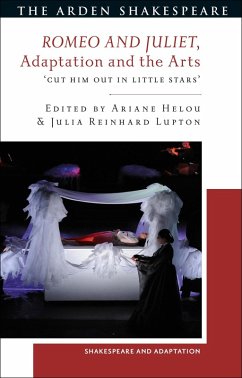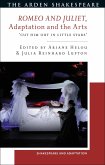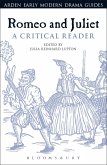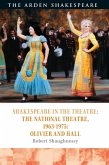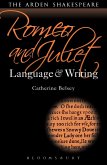Romeo and Juliet is the most produced, translated and re-mixed of all of Shakespeare's plays. This volume takes up the iconographic, linguistic and performance layers already at work within it and tracks the play's dispersal into neighbouring art forms - including ballet, opera, television and architecture - and geographical locations, including Italy, Ireland, France, India and Korea.
Chapters trace Shakespeare's own acts of adaptation and appropriation of sources and the play's subsequent migrations into other media. Part One considers reworkings of Romeo and Juliet in Hector Berlioz's 1839 choral symphony and ballets choreographed by Sir Kenneth MacMillan and John Neumeier. Part Two explores the afterlives of Shakespeare's lovers in the narrative forms of fiction, film and serial television, including works by James Joyce, Samuel Beckett and HBO's series Westworld.
Part Three examines dramatic adaptations of the play into other languages, dialects and cultural contexts. Authors consider Hindi translations and the complex and changing status of Shakespeare's work in India, as well as productions of the play in Korea set against its evolving history. The volume ends with a first-person account of staging Romeo and Juliet at an HBCU (historically Black college/university), documenting the tensions between the notion of Shakespeare as a universal author and the lived experiences of marginalized communities as they engage with his plays.
Chapters trace Shakespeare's own acts of adaptation and appropriation of sources and the play's subsequent migrations into other media. Part One considers reworkings of Romeo and Juliet in Hector Berlioz's 1839 choral symphony and ballets choreographed by Sir Kenneth MacMillan and John Neumeier. Part Two explores the afterlives of Shakespeare's lovers in the narrative forms of fiction, film and serial television, including works by James Joyce, Samuel Beckett and HBO's series Westworld.
Part Three examines dramatic adaptations of the play into other languages, dialects and cultural contexts. Authors consider Hindi translations and the complex and changing status of Shakespeare's work in India, as well as productions of the play in Korea set against its evolving history. The volume ends with a first-person account of staging Romeo and Juliet at an HBCU (historically Black college/university), documenting the tensions between the notion of Shakespeare as a universal author and the lived experiences of marginalized communities as they engage with his plays.

